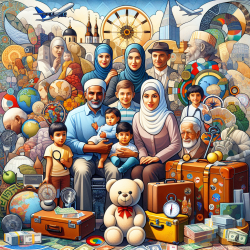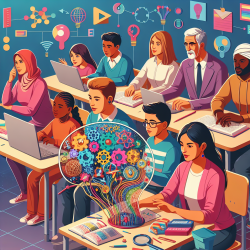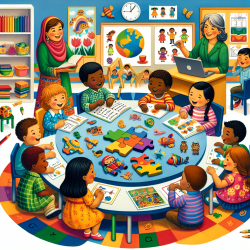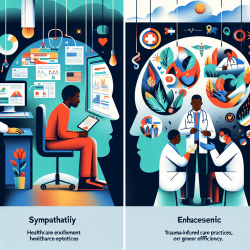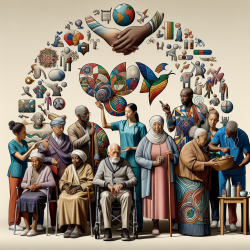Introduction
In today's increasingly globalized world, the movement of people across borders has become a common phenomenon. This migration often involves families who face unique challenges during pregnancy, postpartum, and early childhood. The research article "Transnationalism and care of migrant families during pregnancy, postpartum and early-childhood: an integrative review" provides valuable insights into how transnational ties impact the care of migrant families. This blog aims to help practitioners improve their skills by implementing the outcomes of this research or encouraging further exploration.
Understanding Transnationalism
Transnationalism refers to the connections that migrants maintain with their countries of origin. These ties can be categorized into 'ways of being' and 'ways of belonging.' 'Ways of being' include economic, social, and emotional ties, while 'ways of belonging' encompass cultural, religious, and linguistic identities. Both aspects significantly influence the experiences of migrant families during pregnancy and early childhood.
Key Findings from the Research
The integrative review conducted by Merry et al. (2020) examined over 69 articles to understand how transnational ties are addressed in the care of migrant families. The findings revealed several critical insights:
- Transnational ties in terms of 'ways of belonging' are often acknowledged and addressed in care. This includes cultural, religious, and linguistic identities.
- There is a significant gap in addressing 'ways of being,' such as emotional and social ties with family members back home.
- Care providers' perceptions of transnational ties vary, with some being open to accommodating cultural differences, while others are not.
- There is a need for culturally safe care that respects and promotes diversity rather than merely encouraging integration.
Implementing Research Outcomes
For practitioners working with migrant families, the following strategies can enhance care:
- Cultural Competency Training: Engage in training programs that focus on understanding and respecting cultural differences.
- Use of Linguistic and Cultural Brokers: Employ interpreters and cultural liaisons to bridge communication gaps.
- Inquire About Transnational Ties: Ask about family members back home and acknowledge the emotional and social ties that migrants maintain.
- Promote Diversity: Support migrants in practicing their cultural and religious traditions and speaking their native languages.
Encouraging Further Research
While the current research provides valuable insights, there are still gaps that need to be addressed. Practitioners are encouraged to engage in further research to explore:
- Care providers' perceptions of transnational 'ways of being.'
- The impact of transnational ties on the effectiveness of health and social care interventions.
- How technology can be used to involve family members abroad in care processes.
Conclusion
By understanding and addressing the transnational ties of migrant families, practitioners can provide more effective and culturally safe care. This approach not only improves health outcomes but also fosters a sense of belonging and identity among migrant families.
To read the original research paper, please follow this link: Transnationalism and care of migrant families during pregnancy, postpartum and early-childhood: an integrative review.
